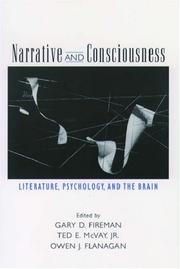| Listing 1 - 10 of 125 | << page >> |
Sort by
|
Book
Year: 1973 Publisher: Paris: Corti,
Abstract | Keywords | Export | Availability | Bookmark
 Loading...
Loading...Choose an application
- Reference Manager
- EndNote
- RefWorks (Direct export to RefWorks)
Book
Year: 1983 Publisher: Genève : Droz,
Abstract | Keywords | Export | Availability | Bookmark
 Loading...
Loading...Choose an application
- Reference Manager
- EndNote
- RefWorks (Direct export to RefWorks)
Book
Abstract | Keywords | Export | Availability | Bookmark
 Loading...
Loading...Choose an application
- Reference Manager
- EndNote
- RefWorks (Direct export to RefWorks)
Book
ISBN: 9781412986205 Year: 1998 Publisher: Thousand Oaks, Calif. ; London : SAGE,
Abstract | Keywords | Export | Availability | Bookmark
 Loading...
Loading...Choose an application
- Reference Manager
- EndNote
- RefWorks (Direct export to RefWorks)
In this volume Atkinson shows the qualitative researcher how to prepare and conduct meaningful life story interviews and also places the life story interview in the wider research context. He deals with the issues of transciption and interpretation.
Storytelling. --- Autobiography. --- First person narrative.

ISBN: 0195161726 Year: 2003
Abstract | Keywords | Export | Availability | Bookmark
 Loading...
Loading...Choose an application
- Reference Manager
- EndNote
- RefWorks (Direct export to RefWorks)
Autobiographical memory --- Consciousness --- First person narrative --- Congresses

ISBN: 8437611121 Year: 1992 Publisher: Madrid : Cátedra,
Abstract | Keywords | Export | Availability | Bookmark
 Loading...
Loading...Choose an application
- Reference Manager
- EndNote
- RefWorks (Direct export to RefWorks)
Fiction --- First person narrative. --- Narration (Rhetoric). --- Technique.
Book
ISBN: 8871191188 Year: 1989 Publisher: Roma Bulzoni
Abstract | Keywords | Export | Availability | Bookmark
 Loading...
Loading...Choose an application
- Reference Manager
- EndNote
- RefWorks (Direct export to RefWorks)
Fiction --- First person narrative --- History and criticism
Book
ISBN: 0231555318 Year: 2023 Publisher: New York : Columbia University Press,
Abstract | Keywords | Export | Availability | Bookmark
 Loading...
Loading...Choose an application
- Reference Manager
- EndNote
- RefWorks (Direct export to RefWorks)
"The recent trend of autobiographies written by historians has resulted in a further shift to a new hybrid form of subjective history writing, which includes a significant autobiographical dimension, as if history could not be written without exhibiting the inner life of the author. Neither traditional history nor autobiography, this genre transgresses inherited traditions and puts into question a fundamental and generally accepted assumption of history writing: third-person narration, i.e., a nonsubjective reconstitution and interpretation of the past. The most visible dimension of this "subjectivist" turn, as seen particularly in works by Ivan Jablana and Philippe Artieres but also in Dominique Kalifa, described as a "passeur" for his ability to interject himself into the underworld in such books as Vice, Crime, and Poverty (Columbia, 2019), and Mark Mazower, especially in What You Did Not Tell: A Russian Past and the Journey Home (Other Press, 2017), which combines European history with the history of his own family, is a literary inflection that, without blurring the conventional distinction between history and fiction, globally reconfigures their relationship by injecting into the former many stylistic codes-first of all, first-person narrative-that traditionally belong to the latter. Therefore, a symbiotic in relationship emerges: whereas novels are increasingly obsessed with their historical verisimilitude-W.G. Sebald, JonathLittell, Javier Cercas-historical inquiries are built and told as stories, with individual heroes and thrilling plots. This expansion of the "self" posits some fundamental questions related not only to the epistemological status of writing history in the first person but also to the meaning of truth for both history and literature. Ultimately, it raises equally relevant questions about the world we live in, since this "subjectivist" turn is connected to a cultural transformation of our time that greatly transcends the boundaries of a single discipline. It results from "presentism"-a perception and a representation of time closed into the present--the past static, melancholic, the future devoid of an emancipatory vision-which is the neoliberal regime of historicity. Neoliberal reason is much more than a governing principle of global capitalism: it is an anthropological habitus, an ethos, and a form of life--private, apolitical, individualist. While subjectivism has given us rich horizons of multiple I's and different scalar views of microhistory, Traverso argues that we cannot lose sight of the collective story that is made of and by us and is the arena of political and social transformation"--
First person narrative. --- Historiography. --- History in literature.

ISBN: 3770521854 Year: 1984 Publisher: München Fink
Abstract | Keywords | Export | Availability | Bookmark
 Loading...
Loading...Choose an application
- Reference Manager
- EndNote
- RefWorks (Direct export to RefWorks)
First person narrative --- Nabokov, Vladimir Vladimirovich, --- Technique.

ISBN: 382048552X Year: 1985 Publisher: Frankfurt am Main Lang
Abstract | Keywords | Export | Availability | Bookmark
 Loading...
Loading...Choose an application
- Reference Manager
- EndNote
- RefWorks (Direct export to RefWorks)
Fiction --- First person narrative --- History and criticism
| Listing 1 - 10 of 125 | << page >> |
Sort by
|

 Search
Search Feedback
Feedback About
About Help
Help News
News